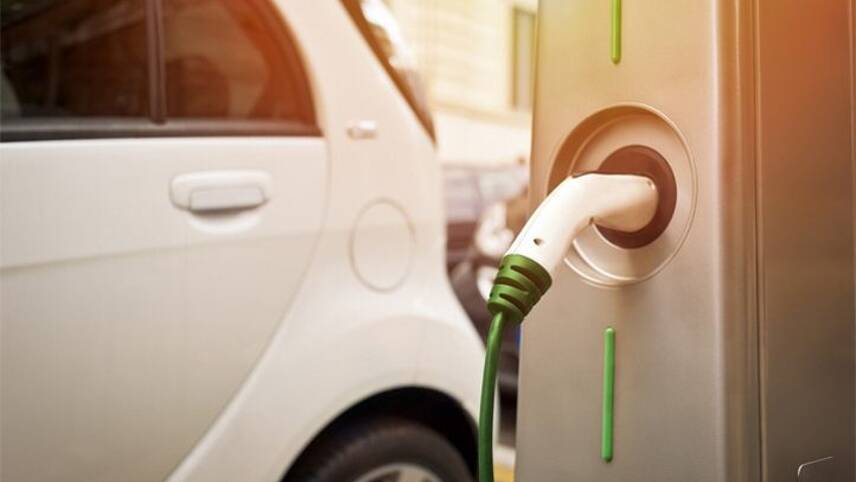Register for free and continue reading
Join our growing army of changemakers and get unlimited access to our premium content

Collective savings could surpass £4bn annually by 2030
The organisations have convened through Innovation Gateway to share best practice to overcome barriers to charging infrastructure rollout across the UK. The EVzero initiative will be led by including Tesco, NatWest Group, LeasePlan UK, Defra and The Environment Agency.
EVzero will work as an action group to develop solutions to improve availability, efficiency, utilisation and financing on EV charging.
Specifically, the businesses will work to reduce risks and costs associated with the development of charging infrastructure for corporates.
Innovation Gateway’s chief executive Matt Pumfrey said: “Innovation Gateway has a heritage in collaboration and innovation identification, and we are bringing our framework to support the deployment of tangible EV projects.
“By doing this together, we will reduce risks and costs and develop solutions based around the collective demand of the world’s most ambitious organisations.”
Charging needs
In recent years, an average of 7,000 EV charging points have been installed annually across the UK. But that rate will need to increase to 35,000 per year, according to Policy Exchange.
Late last year, the Government confirmed that all new homes and workplaces built in England from 2022 will need to have EV charging points as standard. The mandate will apply to developers of new residential housing, office blocks and retail sites, as well as to the developers of renovations where there are ten or more parking spaces.
To support SMEs in meeting the requirements, a new three-year loan programme with a £150m funding pot will be operated through Innovate UK.
The UK Government estimates that the requirement will prompt the installation of up to 145,000 extra charging points each year through to 2030 – the point at which the national ban on new petrol and diesel car sales will come into effect.
As for the businesses involved in EVzero, many have longstanding commitments to integrating chargepoints across their estates.
NatWest Group has confirmed plans to install 600 EV charging points across its UK office locations by 2023.
Commenting on this week’s announcement, NatWest Group’s design manager Jacqueline Carrington-Fallow said: “Developing a suitable charging infrastructure is key to the successful transition to electric vehicles for many organisations’ commercial operations.
“We are pleased to be working with like-minded organisations to address shared problems and come up with solutions that will help to accelerate the decarbonisation and electrification of our fleet vehicles.”
Elsewhere, Tesco is working with the Government’s Electric Vehicle Fleet Accelerator (EVFA), bp, BT, Direct Line Group, Royal Mail, ScottishPower and Severn Trent to increase the uptake of EVs in the UK.
The companies and EVFA members have committed to converting their fleets to EVs by 2030 and to buying 70,000 British-built electric vans, provided the Government introduces enabling policies.
UK businesses are planning to spend £15.8bn on EVs between April 2021 and March 2022, a 50% increase in spending from the previous year.
That is according to a new survey from Centrica Business Solutions. The survey polled 200 UK businesses that operate fleets. Two-thirds of the companies polled said that they are on track to switch to a fully electric fleet by 2030 – the time at which the UK Government’s ban on new petrol and diesel car sales will come into effect.
Additionally, businesses involved in The Climate Group’s EV100 initiative have collectively rolled out more than 169,000 EVs, with 89,000 having been rolled out in 2020 alone.
Tesco’s UK property director Tim Golding said: “We’re delighted to be collaborating with our Innovation Gateway EVzero Action Group partners – an initiative that will help its diverse membership identify and overcome the collective challenges they and we face.”
BMW green charging
In related news, BMW this week completed a successful demonstration of a new smart charging system that uses EV identification across charging points to enable the car to be charged using 100$ renewable electricity.
BMW is working with Elia Group, the Belgian and German Transmission Service Operator (TSO), in collaboration with Energy Web, the non-profit building operating systems for energy grids on a new smart system for EV charging.
The aim of the initiative is to enable fast EV charging and supplier switching using only renewable electricity. It uses a smart platform to identify the EV through an “open charging network” that increases the visibility of assists, including EV, chargepoint and assets connected to the grid. BMW is hoping that the initiative will improve transparency on the type of electricity being used to charge an EV, which could enable 100% green electricity for charging.
Matt Mace


Please login or Register to leave a comment.